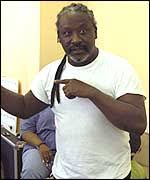
Don Kinch holds a Bachelor of Education degree from the University of Surrey and a Masters degree Anthropology from the University of London He is an Educator, Playwright and a consistent proponent of black theatre in the UK.
Don Kinch’s knowledge and experience spans many years and many lives. He has a long and varied history that combines both the artistic and the academic.
His teaching career spans secondary schools to Further Education (City College) to University. (Birmingham University)
His plays are produced across continents including the USA, Caribbean, Africa and Europe, and by major theatre companies and theatres including the Birmingham Repertory Theatre, West Yorkshire Playhouse, South African State Theatre, Market Theatre and the Grahamstown and the Edinborough international festivals

Three of his plays, namely In Transit, (BBC), Changing The Silence, (CHANNEL4) and The BalmYard (BBC) were broadcast on national television. Not Quite Gospel was Broadcast on BBC Radio 4 After- noon play.
His film , Margins to Mainstream, the story of Black Theatre in Britain was the first to tell this story on film.
He
edited and wrote for two magazines, namely Staunch
magazine,
1978 – 1983 and Wired
Up magazine,
1992 – 1997
He
was a founding member of Arts Council black theatre project
(Sustained
theatre, West Midlands)
2010 – 2014
He
was the Arts Editor for Phoenix
Newspaper,
2014-2015
He
was the founder and artistic
director for
three theatre companies, namely Staunch Poets and Players, African
Peoples Theatre and Nu century Arts.
He was the producer and artistic director of the first national black arts festival “KAJOYO” (1989) held in the UK.
His work provides an outlet for social and cultural commentary often, highlighting political inconsistencies while exploring culturally specific expressions. He gained enormous national and international recognition for his contribution to the development and growth of black theatre in the UK. His work as a writer, theatre director, artistic director combined with his intellectual contribution on a variety of artistic panels, occupies a central place in shaping local and national policy.

